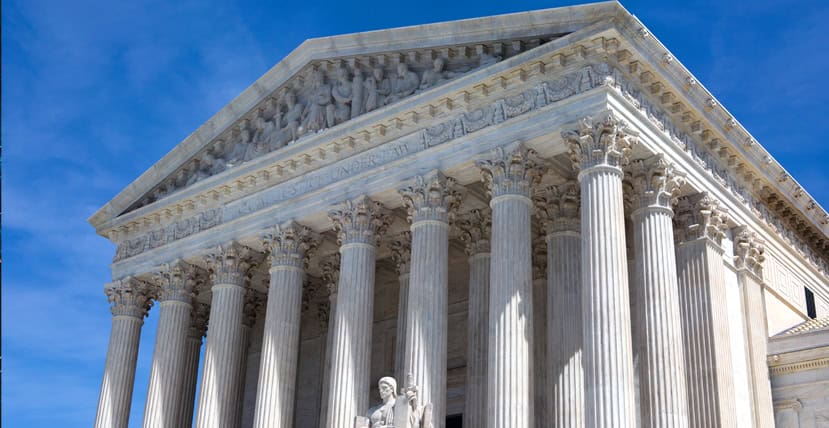Every month, Erise’s trademark attorneys review the latest developments at the U.S. Patent and Trademark Office, in the courts, and across the corporate world to bring you the stories that you should know about:
Chanel Wins $4 Million Trademark Infringement Verdict Against Reseller
A federal jury awarded international fashion giant Chanel $4 million in statutory damages last month after finding a reseller liable for trademark infringement, false association, selling counterfeit goods, and false advertising.
What Goes Around Comes Around (WGACA) is a retailer that sells second-hand clothing, bags, jewelry and accessories, including Chanel products. WGACA was not an authorized Chanel reseller and did not purchase inventory directly from Chanel or authorized Chanel resellers, according to cross-motions for summary judgment.
The jury found that WGACA acted “willfully, with reckless disregard, or with willful blindness” in its use of Chanel’s hashtags, including #WGACACHANEL. The jury also found for Chanel on the question of whether WGACA offered non-genuine Chanel products for sale and acted “willfully, with reckless disregard, or with willful blindness.” Chanel had alleged WGACA advertised its products with statements like “Buy WGACA CHANEL- 100% Authenticity Guaranteed.”
As IP Watchdog points out, the jury verdict could have implications for another Chanel lawsuit filed against a luxury consignment reseller, The RealReal.
Federal Circuit Finds Errors in TTAB’s Likelihood of Confusion Analysis
IP Watchdog also covered the Federal Circuit’s decision vacating a Trademark Trial and Appeal Board (TTAB) denial of a petition filed by the owner of the BABY MAGIC mark to cancel the mark BABIES’ MAGIC TEA.
According to the decision, the petitioner, Naterra International, Inc., owns four registrations for the standard character mark BABY MAGIC for toiletry goods including shampoo, oil, lotion, wipes, ointments, and lotions. Samah Bensalem owns the standard character mark BABIES’ MAGIC TEA for “medicated tea for babies that treats colic and gas and helps babies sleep better.”
The TTAB denied Naterra’s petition because it failed to prove a likelihood of confusion after the Board conducted an analysis under the 13 DuPont factors. Naterra appealed, contending that substantial evidence does not support the TTAB’s finding that the similarity and nature of the goods (DuPont factor two) and trade channels (DuPont factor three) disfavor a likelihood of confusion, and that the TTAB erred by failing to give greater weight to the similarity of the marks (DuPont factor one) and the fame of the BABY MAGIC mark (DuPont factor five) in its overall likelihood of confusion analysis.
The Federal Circuit panel agreed with Naterra on DuPont factor one, ruling it should “weigh heavily in the confusion analysis,” given that the TTAB found “the first two words of [the] BABIES’ MAGIC mark and the entirety of [the] BABY MAGIC mark look and sound almost the same and have the same connotation and commercial impression.”
The second DuPont factor “considers whether the consuming public may perceive the respective goods and services of the parties as related enough to cause confusion about the source or origin of the goods and services.” Naterra’s expert “provided several examples of other umbrella baby brand companies that purportedly provide certain products in both the baby skincare product category and the baby ingestible product category,” but the TTAB rejected this testimony as “unsupported by underlying evidence.” However, the Federal Circuit panel found this testimony to be pertinent to the relatedness of the goods and pointed out that Bensalem’s counsel admitted at oral argument that the third-party evidence is “absolutely very relevant.”
The third DuPont factor considers “[t]he similarity or dissimilarity of established, likely-to-continue trade channels.” The panel agreed with Naterra’s argument that the TTAB’s finding on the third factor was not supported by substantial evidence because it ignored Bensalem’s admission that the parties’ goods are sold in similar trade channels, such as Walmart and Amazon.
Ultimately, the panel concluded the TTAB erred in weighing the first DuPont factor and failed to address relevant evidence concerning the third DuPont factor. But the panel couldn’t discern whether the TTAB properly addressed relevant evidence concerning the second DuPont factor. The matter is now back in the hands of the TTAB to reconsider.
Other Marks in the News
- AAA sues film studio A24 in trademark case over ‘AAA24’ program (Reuters)
- NBCUniversal must face DeLorean trademark trial over ‘Back to the Future’ merchandise (Reuters)
- US court weighs Bulleit brand’s fame in whiskey-bottle trademark fight (Reuters)
- Unpicking the mass-filing strategy of the US’ most prolific trademark plaintiff (World Trademark Review)
- Dwayne Johnson Now Owns the IP Rights to “Jabroni” (The Hollywood Reporter)


